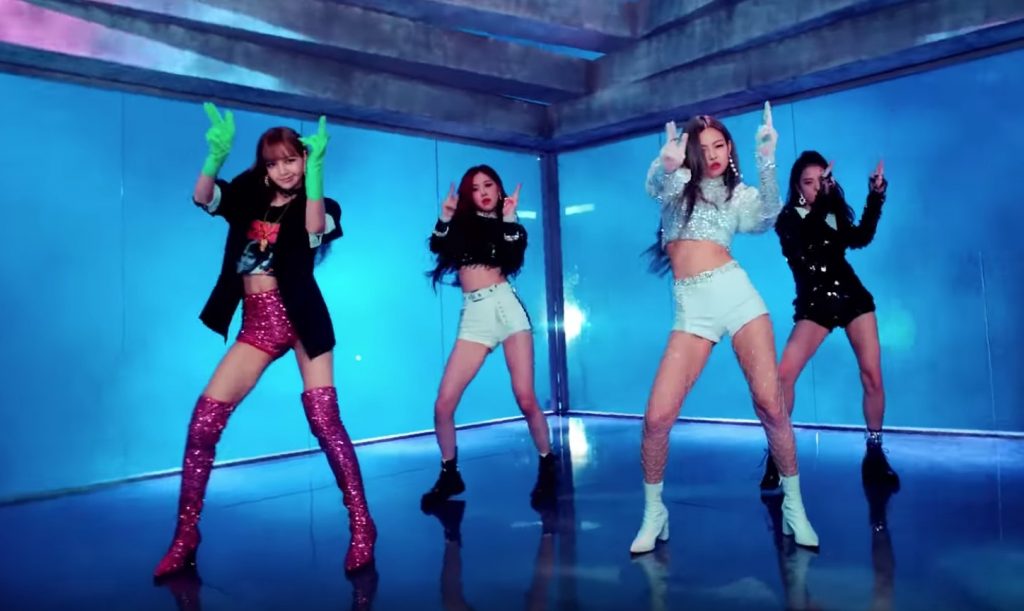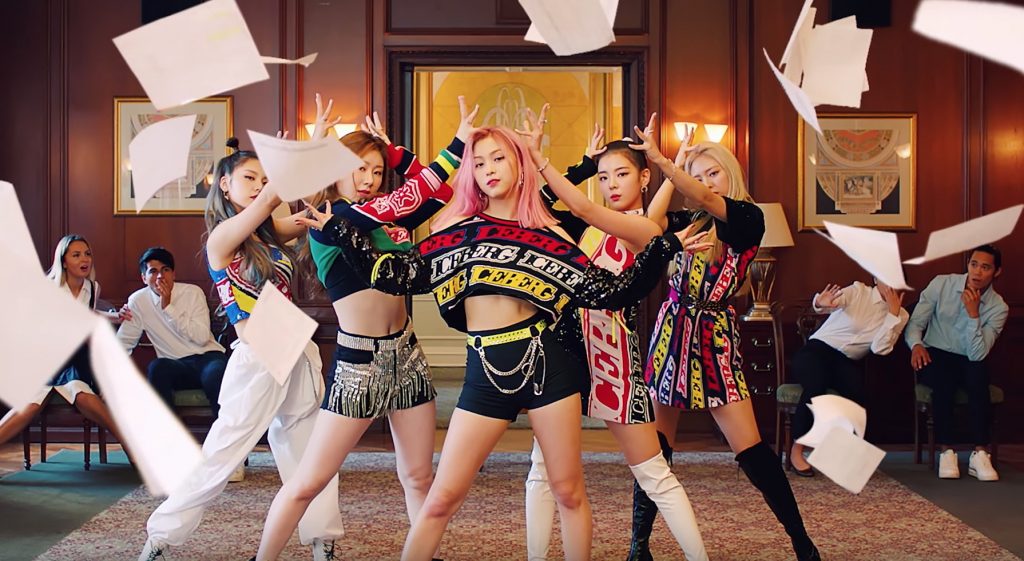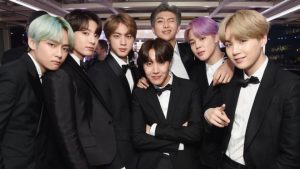Editor’s Note: This article was written before three new fan-voted categories were announced by MTV: Best Group, Best Power Anthem, and Song of Summer. BTS and Black Pink have both been nominated for Best Group.

This year has seen a renewed energy towards K-pop that probably hasn’t been felt since Psy‘s “Gangnam Style” went viral back in 2012. More and more idols are making their way overseas, as their companies show more confidence in navigating the west for promotional opportunities. This current boom of interest is now spilling over into terrain that seasoned K-pop fans doubted would ever happen years ago: the MTV Video Music Awards (VMAs).
The awards ceremony is viewed as one of the hallmarks of popular western culture with its primary focus being the recognition of music videos. When the 2019 VMA nominations were revealed, fan reactions were split over the new K-pop category. While some welcomed the recognition of K-pop as a sign of progress, others saw the new award as a deliberate exclusion from ever considering K-pop groups as artists on par with Western musicians. Is MTV actually pushing forward with a specialized category to reward the talents of Korean idols, or is this simply another way to boost ratings for a subjectively failing ceremony?
Award nominations are almost always rife with controversy over who got snubbed, and the VMAs are no exception. In previous years, the ceremony faced criticism from the nominees themselves, who questioned the qualifications necessary for recognition in the major categories. Fans often demand explanations for why their favorite artists were sidelined from those categories, arguing that achievements met outside of the awards should hold weight in the consideration of nominations. Because this argument has been seen numerous times, it is easy to brush it off as another case of butthurtness because one’s fave isn’t snagging every trophy allegedly due to them. However, when the subject of xenophobia is brought into question, it is harder to fully ignore these discrepancies.

To understand the context of the situation better, one needs to know who is nominated. BTS has 4 nominations for their “Boy with Luv” MV for Best Choreography, Best Art Direction, Best Collaboration, and Best K-pop. They are the only group with nominations outside of the K-pop category. The other nominees up for Best K-pop are Blackpink‘s “Kill This Love”, NCT 127‘s “Regular”, Monsta X‘s “Who Do You Love”, Tomorrow x Together‘s “Cat & Dog”, and Exo‘s “Tempo.”
“MTV recognizes K-pop as popular genre! Fans should be grateful!” is a common sentiment echoed by many, not just K-pop fans. Here’s the thing — the “gratitude” attitude is almost always used as a dismissal of bigotry. “They got really far for a bunch of Asians who don’t speak English. Isn’t that enough?” The perception is that anyone foreign, who doesn’t speak English or fit into the stereotypical Western standard of celebrity, should be content with any small nod of attention in their direction.

The irony of the situation is K-pop might not have even been made into a category at all if global eyeballs weren’t already fixated in this world that Western media grasps to understand in order to profit from its emerging popularity.
It should come as no surprise that these issues become more apparent as K-pop reaches higher levels of mainstream consciousness. Both Blackpink and BTS have broken numerous YouTube records this year, which are impressive feats even outside the context of K-pop. Accumulating a massive number of views suggests that video carries a level of marketable currency that money can’t buy. More views mean more attention, something businesses will always find attractive. It only seems natural that MTV would be interested in what compels millions of people to watch K-pop videos since they are in the entertainment business.

Keeping this in mind, let’s look at why the selection of K-pop nominees is even questionable. Not sure anyone caught this, but Blackpink is the only female K-pop group nominated — at all. It is difficult to view this new category as a K-pop milestone when consideration hasn’t been given to groups like Twice or Red Velvet. Of course, other girl groups besides those mentioned deserve consideration, so the fact that only one was chosen feels unbalanced.
There is also the choice of Monsta X’s “Who Do You Love?”, a collaboration with French Montana that is entirely sung in English. Given that Monsta X also released “Alligator” a few months earlier, it calls into question why they were nominated for K-pop with a song not sung in Korean. This suggests the choice to nominate them is based more on their nationality rather than the popularity of the video. “Alligator” has over 10 million views more than “Who Do You Love?”, so if the intention of the nomination is picking from the most viewed videos, then this is a glaring oversight. Doing this makes it appear as if MTV only chose an English language song to appeal to an English-speaking market, instead of picking a song that would highlight the Korean language.

Not to undermine the popularity or achievements of any nominees, but adding Tomorrow X Together felt like one of the biggest question marks. Again, there is a huge discrepancy in the selection of their song for “Cat & Dog” versus the highly viewed “Crown”. If we’re talking power rookies, Itzy‘s “Dalla Dalla”, released a couple of months ahead of “Cat & Dog”, dominates with close to 150 million views, more than enough to garner a nom. It’s a bit odd to overlook Itzy unless the goal was including a group which happens to be from the same company as the most nominated K-pop group in hopes to gain both fandoms as viewers. Itzy clearly has strong support out of the gate, so it makes little sense to leave them out… That is unless your only requirement was selecting whichever groups appear to have a lot of American promotional activities; thereby, contributing to a high enough interest that would hopefully spill over to a boost in ratings for the VMAs.

Now let’s address BTS, because it’s harder not to discuss this subject without going over what the group wasn’t considered for: Artist of the Year and Video of the Year. One must ask if they would receive so few nominations had they been a group of doe-eyed Brits sporting bowl-cuts, instead of brightly-maned Koreans who are trying their best to speak all of the English they know. Replace BTS with any popular artist — the Arianas, the Taylors, the Justins, the Shawns — put those names in place of theirs with the same milestones reached. Would they only get 4 noms? Would MTV suddenly feel inspired to create a Canadian Pop category to recognize any Drake with 100 million views?

Furthermore, would any of these artists be excluded from the major categories, which coincidentally, were open to public voting?
For reference, only Best Collaboration and Best K-pop allowed for fan voting. Noting that BTS has won Billboard Top Social Artist for 3 years consecutively, suffice it to say their fandom power is enough to generate the votes for a win. Had the group been nominated for any of the major categories, speculation is they could have had a landslide victory, which is not a bad thing if the actual point of the prize is to go to the MOST popular artist voted by fans. Not even allowing BTS the chance to test their popularity against every strong contender calls into question the validity of this award show. Blackpink could’ve also been granted more nominations outside of the K-pop category, but they, along with 4 other nominees, are now all battling it out solely for bragging rights in one category.
K-pop is abundant with all kinds of musical styles as colorful as idols themselves. To siphon the whole of it into a small category, wholly independent from larger ones which do recognize the popularity of artists regardless of genre, is a disservice to every international fan who has been telling the world for years that idols are not just manufactured products, but musicians on par with most western celebrities. A language barrier should not be a blockade to recognition. Furthermore, fans are tired of western media dismissing K-pop as nothing more than a fad to profit from, and some have called for a boycott of the VMAs to demonstrate how much they dislike being used for views.
MTV probably did think they had K-pop fans on lock by creating this category. The executives in charge possibly saw the K-pop boom as an opportunity to ride off the popularity of these groups, yet they never factored in how insightful K-pop fans really are. Unlike them, fans did consider what this show could’ve meant overall in the western expansion of K-pop, and now, many of them are disappointed that once again, another western outlet took the basic approach to a complex world. K-pop certainly deserves recognition, but not at the blatant refusal to view any of these idols as artists on the same level as English-speaking ones. If these shows don’t want to give K-pop artists their flowers, then they should consider staying out of our garden. Fans would appreciate that more than some arbitrary lip service.
(Billboard, MTV, Spin Magazine, Images via BigHit Entertainment, YG Entertainment, SM Entertainment, JYP, P Nation)
Cjontai is an American writer with a degree in film and television. She loves naps and playing The Sims 4. She has been into K-pop since 2012. Her favorite Korean foods are japchae, bulgogi, and jjajangmyun.


